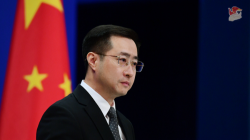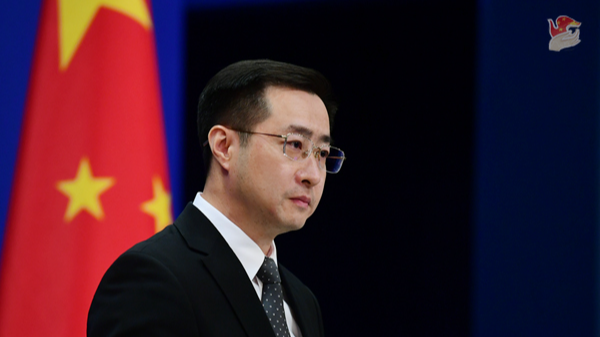Chinese Foreign Ministry Rejects NATO Expansion in Asia-Pacific Region
Asia-Pacific nations reject calls for a regional NATO, emphasizing they do not need such an alliance, says Chinese Foreign Ministry.


China delivered a strong message on Wednesday regarding the presence of the North Atlantic Treaty Organization (NATO) in the Asia-Pacific region. Speaking at a regular press briefing, Foreign Ministry spokesperson Lin Jian asserted that countries in the Asia-Pacific do not welcome NATO and emphasized that an "Asia-Pacific NATO" is neither needed nor wanted.
Lin's statements came in response to recent remarks by a European leader at the Shangri-La Dialogue, which linked the Taiwan question with the Ukraine crisis and suggested that NATO might have grounds to increase its involvement in the Asia-Pacific. The comments also referenced the so-called "China threat" in the South China Sea.
Addressing these points, Lin made it clear that China staunchly opposes such comparisons and suggestions. He reiterated that Taiwan is an inalienable part of China and that the matter remains strictly a domestic issue. According to Lin, "The Taiwan question and the Ukraine crisis are not at all comparable," and any attempt to equate or conflate the two mischaracterizes the true nature of the Taiwan issue.
He stressed the importance of adhering to the one-China principle and urged relevant parties to respect China's sovereignty and territorial integrity. Lin called on international actors to demonstrate their commitment to these principles through concrete actions rather than rhetoric.
Discussing the situation in the South China Sea, Lin asserted that the current state of affairs is stable, and freedom of navigation and overflight are being observed in accordance with international law. He further highlighted that China continues to advocate for settling maritime disputes through negotiations, direct consultation, and respect for historical context among the countries directly involved.
Lin called for restraint from countries outside the region, urging them to respect the ongoing efforts of regional states to maintain peace and stability. He criticized what he described as attempts to 'instigate tension and create disputes', warning that such actions only undermine collective progress in the region.
The spokesperson also addressed the role of NATO, underscoring that as a self-defined regional defensive organization, it lacks any legitimate mandate to extend its activities beyond its traditional geographic scope. Lin declared China’s firm opposition to NATO's eastward push into the Asia-Pacific, which he said would only sow tension, create confrontation, and jeopardize both regional and global stability.
Highlighting Asia’s recent rapid growth and peaceful development, Lin outlined China's diplomatic approach, based on amity, sincerity, mutual benefit, and inclusiveness. He stressed that China opposes bloc confrontation and does not seek to establish spheres of influence—contrasting what he described as a Cold War mentality from some external actors.
In closing, Lin urged parties outside the region to refrain from making ill-intentioned speculations or sowing discord among Asia-Pacific nations. “What they should do is to contribute to peace, stability, and prosperity in the Asia-Pacific region,” he concluded, highlighting the shared interest of all countries in maintaining a harmonious and thriving regional environment.




